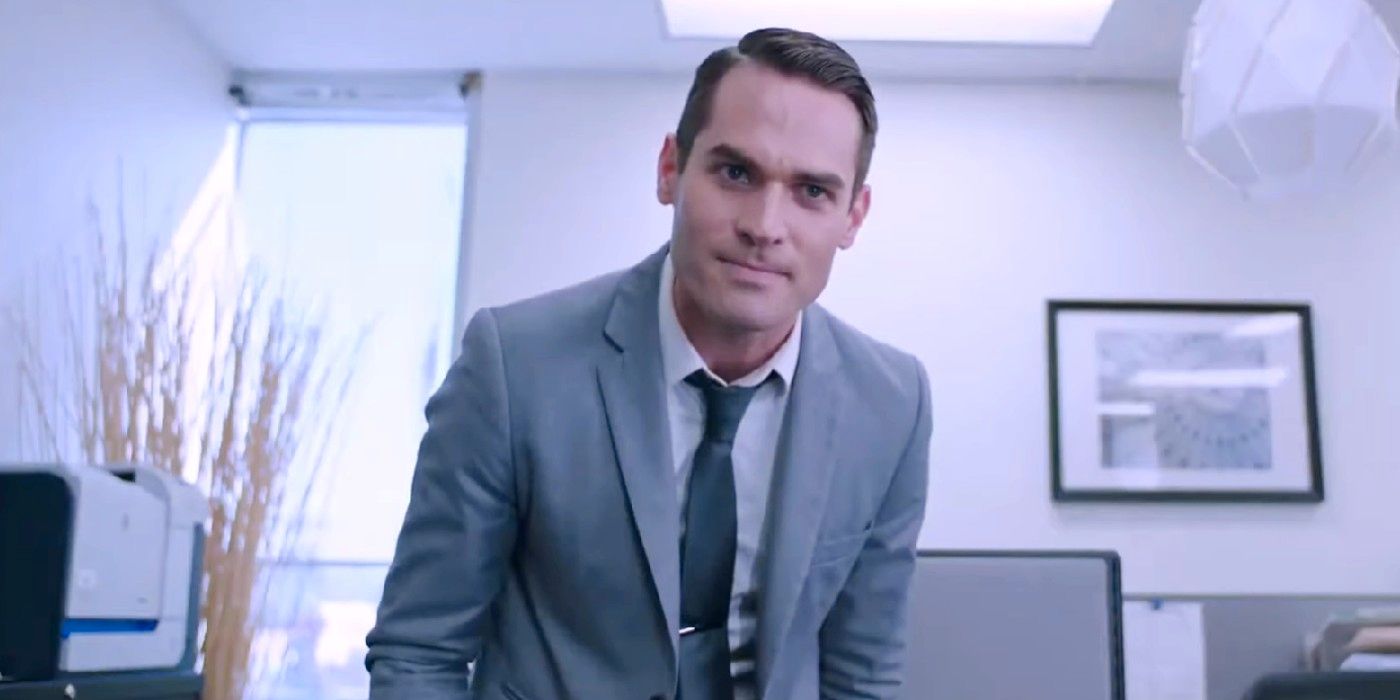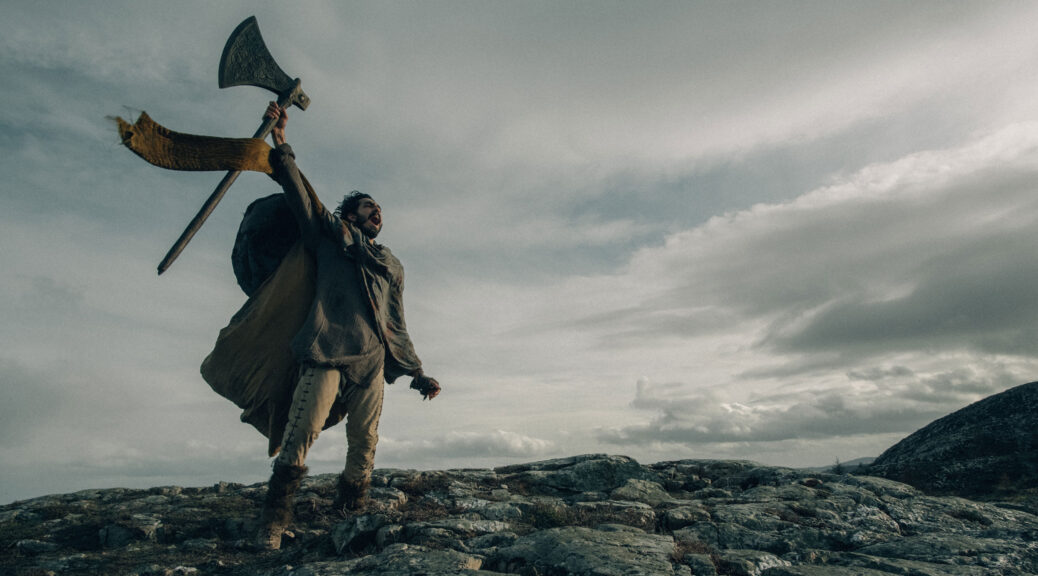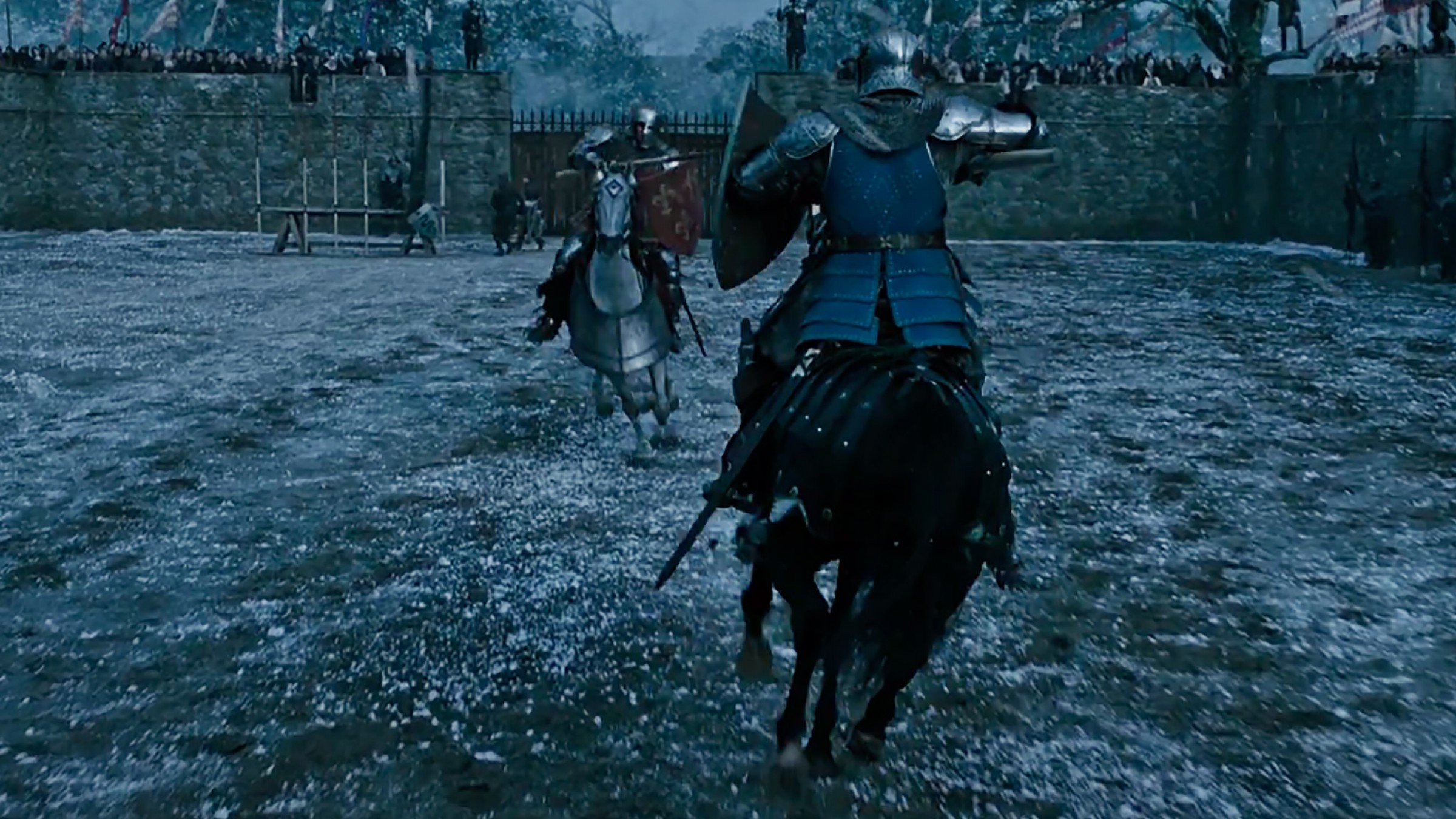by Hope Madden and George Wolf
So many movies come out each year, it’s impossible to keep up. Too many get forgotten, either because they underperformed theatrically, they didn’t get a wide release, they were rolled out poorly to streamers, or they simply had no budget of any kind to draw attention to themselves. So, to give these 20 films a little extra attention, here —in alphabetical order—are our favorite underseen films of 2021.
The Beta Test
If Eyes Wide Shut had been a brutal commentary on the film industry and Tom Cruise had been an unsympathetic, insecure, entitled white man…the point is, The Beta Test is a wild, insanely tense satire.
Co-writers/co-directors/co-stars Jim Cummings and PJ McCabe invite you into a world populated by people who miss the days before Harvey Weinstein’s ousting. The two play Jordan and PJ, respectively—Hollywood agents with no real purpose, no real value, a lot of spin, a lot of anxiety, and a chip on their collective shoulders about the stuff they can no longer get away with.
The Card Counter
The damaged man seeking redemption — it may be the most cinematic concept, or certainly among the most frequently conjured by filmmakers. When Paul Schrader is on his game, no one tells this story better.
Oscar Isaac and his enviable hair play William Tell, gambler. Isaac is a profound talent and essentially flawless in this role. He is the essential Schrader protagonist, a man desperate for relief from an inner torment through repression, redemption or obliteration.
Censor
It’s 1985, Thatcher’s England: an era when controversial films hoping to make their way to screens big and small found themselves more butchered than their characters. Writer/director Prano Bailey-Bond and co-writer Anthony Fletcher evoke such a timestamp with this film, not just in the look and style, but with the social preoccupation.
Censor is a descent into madness film, but its deep love and understanding of the genre play a central role in this madness. Niamh Algar’s performance as the video nasty censor in question is prim and sympathetic, deliberate and brittle. It’s clear from the opening frame that Enid will break. But between Algar’s skill and Bailey-Bond’s cinematic vision, the journey toward that break is a wild ride.
The Humans
Two of 2021’s most prominent film themes – impressive debuts and stellar ensembles – come together in rookie writer/director Stephen Karam’s The Humans.
Adapting his own stage play, Karam displays wonderful instincts for how his story of a family reunion could move from stage to screen with relevant new layers. Buoyed by a first-rate cast including Richard Jenkins, Steven Yeun, Amy Schumer, Beanie Feldstein and Jayne Houdyshell, The Humans slowly revels itself as a domestic horror show, with familiar tensions and deep-seeded fears becoming more frightful than anything going bump in the night.
Lamb
Among the many remarkable elements buoying the horror fable Lamb is filmmaker Valdimar Jóhannsson’s ability to tell a complete and riveting tale without a single word of exposition. Rather than devoting dialog to explaining to us what it is we are seeing, Jóhannsson relies on impressive visual storytelling instincts.
His cast of three – well, four, I guess — sells the fairy tale. A childless couple working a sheep farm in Iceland find an unusual newborn lamb and take her in as their own child. As is always the way in old school fables, though, there is much magical happiness but a dire recompense soon to come. It is an absolutely gorgeous, entirely unusual and expertly crafted gem of a film. You should see it.
Language Lessons
Yes, Language Lessons is a “Zoom call” movie. But don’t let that keep you from dialing in, or you’ll miss a completely charming two-hander from Natalie Morales and Mark Duplass that has plenty to say, with and without subtitles.
And though Language Lessons may have all the markings of a pandemic production, it’s not a “pandemic” film. These two souls are worlds apart due to circumstance rather than quarantine. But they crave to enrich their own lives through sharing them with someone else, and end up giving us a poignant reminder to make more friends and fewer excuses.
The Last Duel
This is a brooding, brutal, violent and sexually violent film, one that utilizes a Rashomon-style narrative to frame an often debated moment in history around a centuries-old struggle that continues today.
Director Ridley Scott presents the tale with exceptional craftsmanship and spectacle, getting big assists from Dariusz Wolski’s gritty, expansive cinematography and Michael Fentum’s detailed sound design. Scott’s remarkable cast — Jodie Comer, Adam Driver, Matt Damon and Ben Affleck — digs in to these old ideas to find startling relevance.
The Last Duel aims for more than just a gripping history lesson. It’s ultimately able to use that history to remind us that the way society treats women generally – and women’s sexuality specifically – has changed little since the freaking Middle Ages.
Mass
An unthinkable tragedy has connected these four people (Jason Isaacs, Martha Plimpton, Ann Dowd, Reed Birney) for life, and veteran actor turned writer/director Fran Kranz explores their journey of healing with a gently assured filmmaking debut full of shattering emotion.
Yes, you will need some of those tissues, too. But Kranz’s touch is so perfect, and the characterizations so real, that you never feel preached to, even with a large crucifix dominating the room.
Mass is a spare chamber piece that makes sure nothing comes easy. You hang on every word, afraid to intrude on this intimate pain yet welcoming the invitation. With insightful writing, superb performances and unassuming direction, it’s a cathartic film that deconstructs an all too common tragedy with overdue honesty.
My Heart Can’t Beat Unless You Tell It To
Making an unnervingly assured feature film debut, writer/director Jonathan Cuartas commingles The Transfiguration’s image of lonely, awkward adolescence with Relic’s horror of familial obligation to create a heartbreaking new vampire tale.
Many things are left unsaid (including the word “vampire’), and My Heart Can’t Beat Unless You Tell It To confines itself to the daily drudgery of three siblings. Dwight (Patrick Fugit) longs to break these family chains, but sister Jessie (Ingrid Sophie Schram) holds him tight with shame, love, and obligation to little brother, the afflicted Thomas (Owen Campbell).
What could easily have become its own figurative image of the masculine longing for freedom mines far deeper concerns. Cuartas weaves loneliness into that freedom, tainting the concept of independence with a terrifying, even dangerous isolation that leaves you with no one to talk to and no way to get away from yourself.
Nine Days
In his feature debut, writer/director Edson Oda presents an impressively assured vision of transfixing beauty and gentle poignancy. While the current run on “appreciate every day” films is hardly surprising in today’s climate, Oda brings an organic originality to the mantra of seeing the world through someone else’s eyes.
Winston Duke (Us, Black Panther) is phenomenal as a “cog in the wheel” who becomes caught between the clinical completion of his duties and the emotional weight of his responsibilities.
Give Oda credit for being unafraid of the moment. He’s taking some big swings at mighty heavy concepts here, with an originality of voice and attention to craft that is welcome any day.
Riders of Justice
Men will single-handedly gun down an entire biker gang rather than go to therapy. That’s the premise from prolific writer-director Anders Thomas Jensen, as he reunites with Mads Mikkelsen in this dark comic revenge fantasy.
But Jensen isn’t nearly as interested in the physical mayhem as the emotional wreckage his oddball characters are all coping with. Riders of Justice treats its characters with such forgiving empathy that it’s easy to forget that the group is also almost certainly responsible for the most murders in Denmark since the Vikings.
Saint Maud
Maud (an astonishing Morfydd Clark) has some undefined blood and shame in her recent past. But she survived it, and she knows God saved her for a reason. She’s still working out what that reason is when she meets Amanda (Jennifer Ehle), a former choreographer now crumbling beneath lymphoma. Maud cannot save Amanda’s body, but because of just the right signs from Amanda, she is determined to save her soul.
As a horror film, Saint Maud is a slow burn. First-time writer/director Rose Glass and crew repay you for your patience, though, with a smart film that believes in its audience. Her film treads the earth between mental illness and religious fervor, but its sights are on the horror of the broken-hearted and lonesome.
Shiva Baby
Clearly, much of writer/director Emma Seligman’s sharp dialog comes from personal experience, and if it’s one you share this is a film that will feel like part of the family. But you didn’t have to be Greek to get caught up in that Big Fat Wedding, and you don’t have to be Jewish to see the joy in Shiva Baby.
Seligman flashes an insight that disarms you with sex and humor, keeping its hand at a subtle distance. But by the time we’re leaving the buffet, a breakout filmmaker and star (the irresistible Rachel Sennot) have delivered a fresh, funny and intimate take on the indignities of finding yourself.
Together Together
It takes a full two minutes to get a really good feeling about Together Together. Writer/director Nikole Beckwith delivers witty, engaging dialogue from the jump, defining characters and setting the stakes in a beautifully organic manner.
There’s love and family and funny stuff here, and though none of it is quite the kind we’re used to seeing, all of it is wonderfully real. Together Together is a delivery that somehow feels comfortable and unique, both overdue and right on time.
Wild Indian
As angry a movie as you’re likely to see, Wild Indian pushes you to hope compassion and tenderness come to the most unlikeable man onscreen.
Writer/director Lyle Mitchell Corbine Jr. refuses to lean on stereotypes that would make the central performance more comfortable viewing. Makwa (a stunning Michael Greyeyes) is neither victim nor noble wiseman. Not entirely a villain, he’s nonetheless ill-suited as antihero or, God forbid, hero. He’s a survivor bound up in his own guilt and shame, taking advantage of whatever he can and hating himself and everyone around him because of it.
It’s a desolate world Corbine Jr. creates, but no less remarkable for its bleakness. A character study unlike anything else on screen this year, Wild Indian gives longtime character actor Greyeyes the opportunity to command the screen and he more than rises to the occasion.



